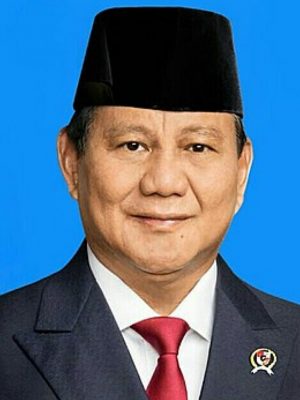Indonesia’s defence minister has proposed a peace plan for the war in Ukraine, calling for a demilitarised zone and a United Nations referendum in what he called disputed territory.
Prabowo Subianto [pictured] called on defence and military officials from around the globe gathered at the Shangri-La Dialogue defence meeting in Singapore on Saturday to issue a declaration calling for a cessation in hostilities.
He proposed a multi-point plan including a ceasefire “in place at present positions of both conflicting parties” and establishing a demilitarised zone by withdrawing 15 kilometres (nearly 10 miles) from each party’s forward position, Reuters reports.
He said the demilitarised zone should be observed and monitored by a peacekeeping force deployed by the United Nations, adding that a UN referendum should be held “to ascertain objectively the wishes of the majority of the inhabitants of the various disputed areas”.
https://www.theguardian.com/world/live/2023/jun/03/russia-ukraine-war-live-russian-army-may-struggle-in-bakhmut-compared-with-wagner-uk-mod-suggests
This is an improvement on the Chinese plan because it also proposes a mechanism for solving the political differences. The Chinese plan would indeed, as Western critics say, “allow Russia to consolidate their gains”. As such it is a hard swallow for both Ukraine and the West.
Referenda could be held in Crimea, in Luhansk and Donetsk and also in Kherson and Zaporizhzhia provinces. Of course, there would still be some negotiation work in advance to agree the boundaries of any referenda and the options put to inhabitants – not to mention the logistics of returning Ukrainians who have fled to their homes, so they could vote.
The reality is that the majority of people in Crimea support annexation to Russia. In the Eastern provinces there are significant numbers of people who would prefer to be ruled by Moscow than Kiev. A referendum could find out how many.
It doesn’t make sense for Kiev to try to take back all of their territory. Even if they were able to, they would face a resistance movement in the far East of Donetsk and Luhansk, at least. And, the same in Crimea. If 80% of the population (as confirmed by Western polling) actually want to be part of Russia, how is Kiev actually going to rule Crimea?
It seems the war is being prolonged by the desire of the US to use it to weaken Russia and/or simply by their inability to treat with Russia on an equal basis, and by the extreme nationalists in Ukraine who are dismissive of the interests of the “pro-Russian” population in the East. I think Russia contributes to the problem by adopting a language which is dismissive of Ukrainian concerns. As I’ve said before; there are certainly meaningful concessions Russia could offer around Crimea short of returning it to Ukraine.
The Indonesian plan is the most rational solution. However, it is not a complete solution. Russia is adamantly opposed to Ukraine joining NATO and until this concern is alleviated they have every interest in keeping a hot war going since Ukraine cannot join NATO while in a state of war. US Secretary of State Blinken recently reiterated a US willingness to discuss “European security architecture” with Russia. In their response to Russia’s pre-war ultimatum the US offered to discuss controlling missile placements in Europe (a sort of replacement for the INF). This was a demand of Russia and should be something the Kremlin can engage with. I wonder if there is some way of bridging this divide? Ukraine joins NATO but there are agreements to refrain from placing any US military infrastructure in the country. At any event, the US is – as a matter of reality – going to have to meaningfully take Russian security concerns into account. (Unless they really do think that Russia will collapse).
Unfortunately, I fear that Professor John Mearsheimer may be right. These peace plans will go nowhere. On the two key questions; territory and NATO, Russia and Ukraine are so far apart that there is simply “no deal to be had”. I am not an expert in armed conflict but I have discovered that some people are. One of the factors which leads to wars continuing, so goes the theory, is when both sides believe that they can secure their objectives by fighting. At the moment both Kiev and Moscow seem to believe that they are more likely to achieve their objectives by military means than by negotiations. It looks like it will take a collapse of some kind on one side or the other to get us to a point where negotiations can happen. Or – there will be a very long stand-off.
Update: indeed, even in the one hour since the Indonesian Peace Plan proposal was reported in the media Kiev has already dismissed it.
